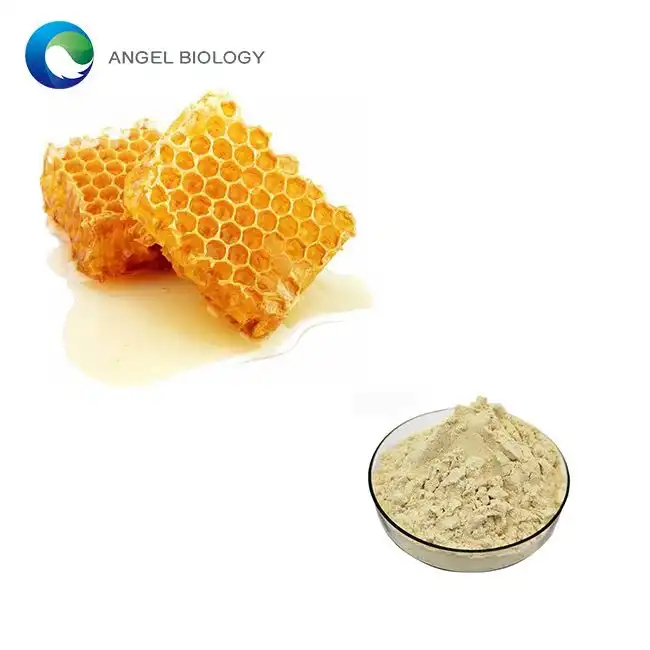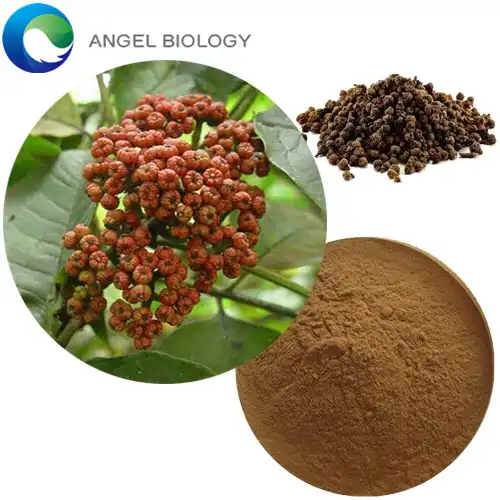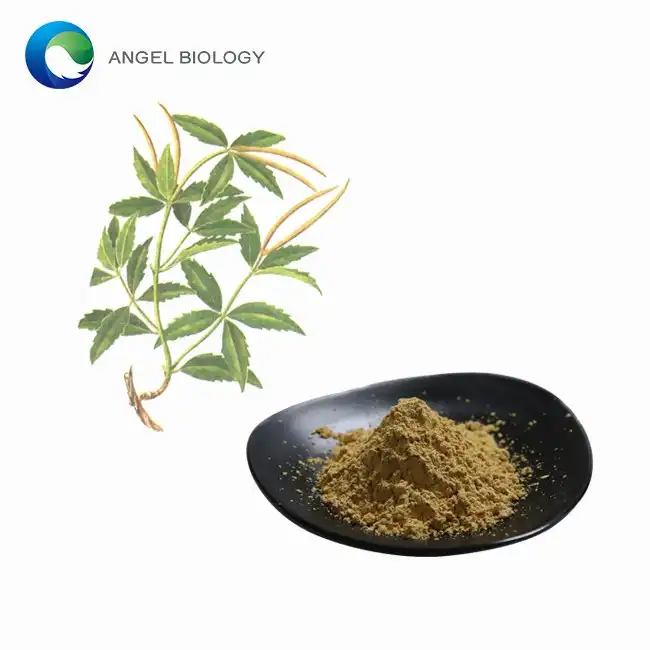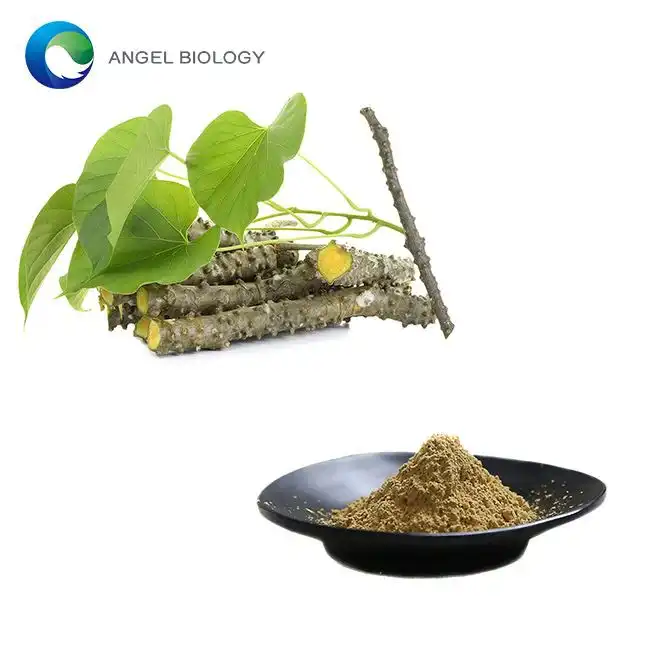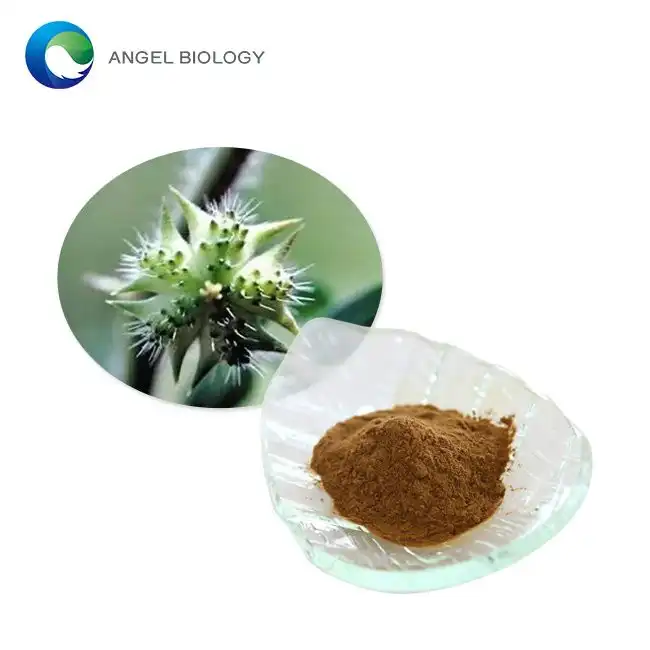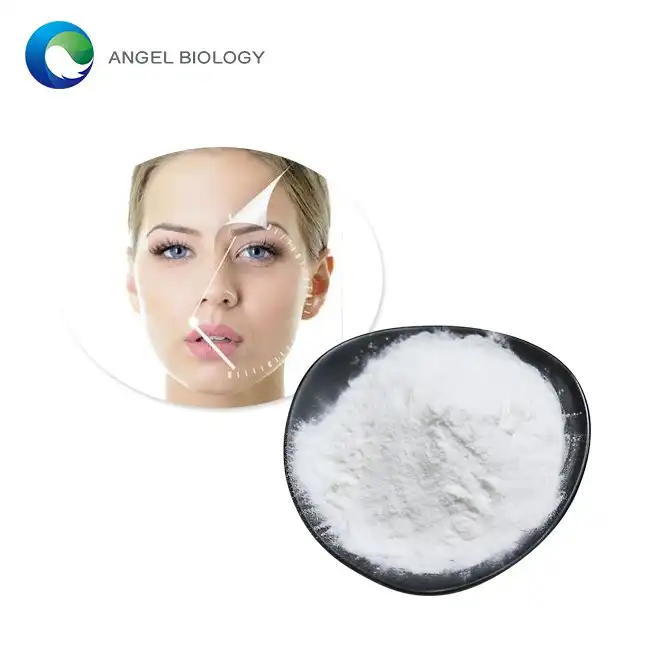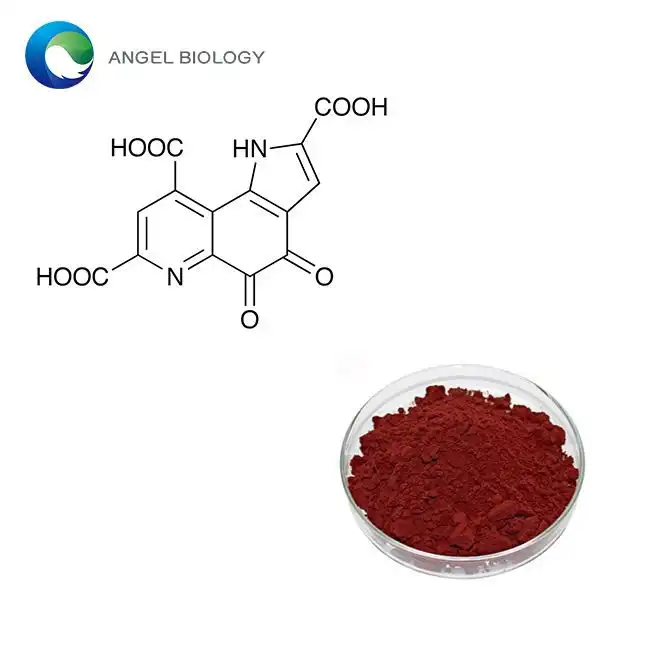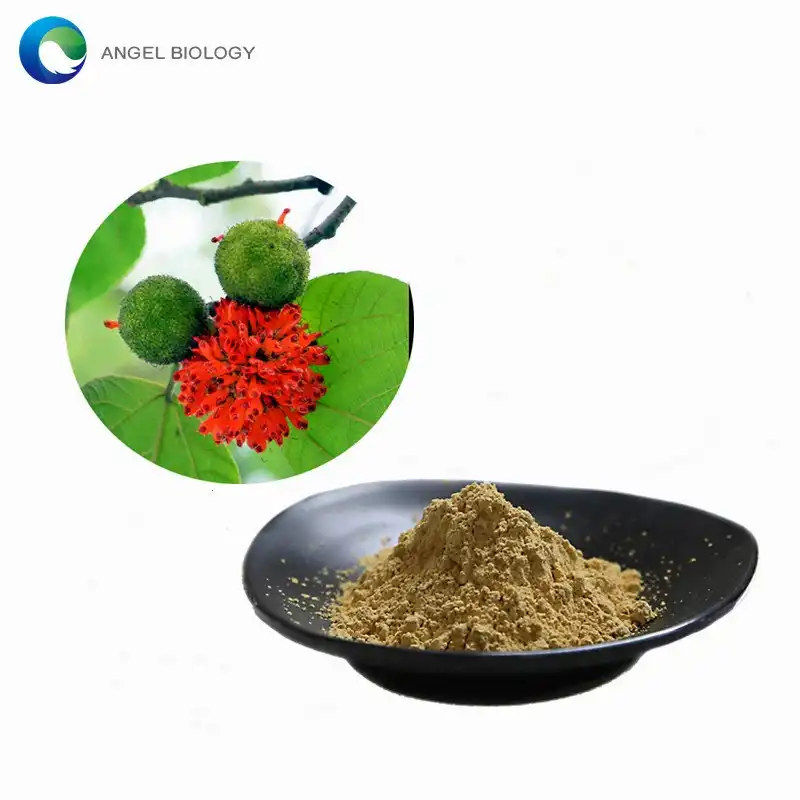Can Quercetin Powder Help with Metabolism?
In the ever-evolving landscape of nutritional supplements, Quercetin Powder has emerged as a fascinating compound that promises potential metabolic benefits. Metabolism, the complex network of chemical processes that convert food into energy, plays a crucial role in maintaining overall health, managing weight, and supporting bodily functions. As individuals increasingly seek natural approaches to enhance metabolic efficiency, Quercetin has captured the attention of health enthusiasts, researchers, and wellness professionals alike.
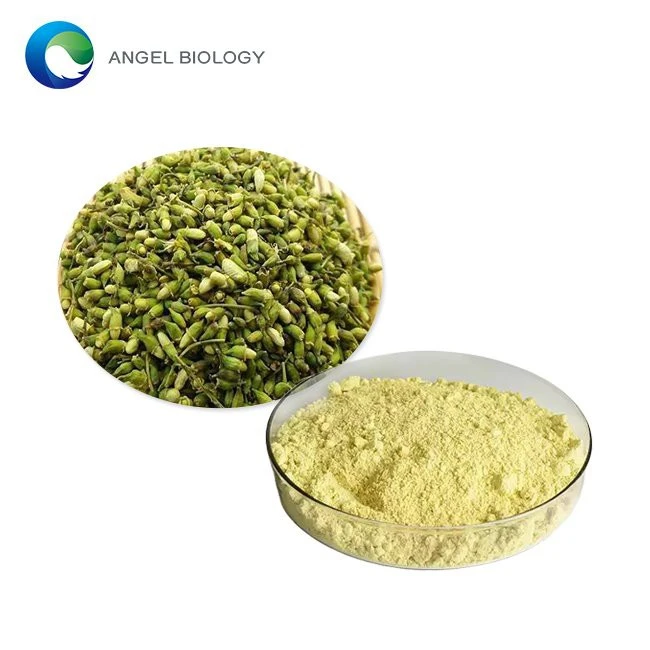
Quercetin Powder
Latin Origin: Sophora Japonica L
Active Ingredient: Quercetin
CAS No.: 117-39-5
Specification: 95%
Test Method: HPLC
Quality: 500 kg
Certifications: ISO9001, Kosher,Halal, FDA, IFEAT
Packing Size: 25kg/drum
Delivery Terms: EXW, FOB, CIP, CIF, DAP
Transportation: Courier, Air, Ocean
Payment Terms: T/T preferred
Delivery: Ready stock, Prompt and Secure Shipment
Free Sample: Available
OEM/ODM: Available
MOQ: 1kg
Discount for large orders
Not for Private Person Sale
Can Quercetin Powder Boost Your Metabolic Rate Naturally?
Metabolic rate, the speed at which your body burns calories and converts nutrients into energy, is a critical factor in maintaining a healthy weight and overall physiological function. Quercetin, a powerful flavonoid found abundantly in plants like onions, apples, and berries, has shown promising potential in supporting metabolic processes through multiple biochemical mechanisms.
Recent scientific investigations have shed light on Quercetin's intricate interactions with cellular metabolism. At the mitochondrial level, Quercetin demonstrates remarkable capabilities in enhancing mitochondrial function, which is essentially the powerhouse of cellular energy production. Mitochondria play a pivotal role in metabolic efficiency, and by supporting their optimal performance, Quercetin Powder may contribute to improved energy metabolism.
Research suggests that Quercetin can activate key metabolic regulators like AMPK (AMP-activated protein kinase), a critical enzyme that acts as a metabolic master switch. When activated, AMPK stimulates glucose uptake, increases fatty acid oxidation, and promotes mitochondrial biogenesis. This cascade of metabolic enhancements could potentially translate to improved energy expenditure and more efficient calorie burning.
Furthermore, Quercetin's potential to modulate insulin sensitivity presents another fascinating avenue for metabolic support. Insulin, a hormone crucial in regulating blood sugar levels and metabolism, can significantly impact weight management and overall metabolic health. Studies have indicated that Quercetin might help improve insulin sensitivity, potentially reducing insulin resistance – a common metabolic disorder associated with conditions like type 2 diabetes and metabolic syndrome.
The antioxidant properties of Quercetin also play a significant role in metabolic processes. Oxidative stress can impair metabolic function and contribute to inflammation, which disrupts normal metabolic pathways. By neutralizing free radicals and reducing oxidative stress, Quercetin helps create a more favorable internal environment for optimal metabolic performance.
Animal studies have provided compelling evidence of Quercetin's metabolic benefits. In controlled experiments, rodent models demonstrated enhanced metabolic rate, reduced fat accumulation, and improved glucose tolerance when supplemented with Quercetin Powder. While human studies are ongoing, these preliminary findings offer promising insights into the potential metabolic advantages of this remarkable compound.

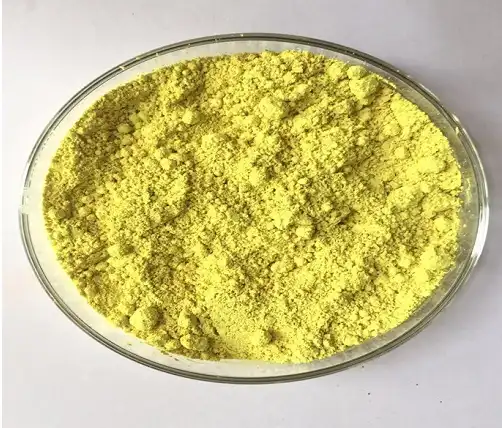
How Does Quercetin Influence Metabolic Health and Weight Management?
Weight management is a complex interplay of dietary intake, physical activity, hormonal balance, and metabolic efficiency. Quercetin emerges as a potential ally in this intricate process, offering multifaceted support for individuals seeking to optimize their metabolic health and manage weight effectively.
One of the most intriguing aspects of Quercetin's influence on weight management is its potential to modulate adipose tissue metabolism. Adipose tissue, commonly known as body fat, is not merely a passive energy storage system but an active endocrine organ that influences metabolic processes. Quercetin has demonstrated the ability to interact with adipocytes (fat cells), potentially influencing their differentiation, lipid accumulation, and inflammatory responses.
Clinical research suggests that Quercetin might help inhibit the formation of new fat cells (adipogenesis) and promote the breakdown of existing fat stores (lipolysis). This dual action could contribute to more effective weight management strategies. By potentially reducing fat cell proliferation and encouraging fat breakdown, Quercetin offers a nuanced approach to supporting metabolic health.
Inflammation represents another critical factor in metabolic dysfunction and weight gain. Chronic low-grade inflammation can disrupt normal metabolic signaling, leading to insulin resistance, increased fat storage, and metabolic syndrome. Quercetin's potent anti-inflammatory properties can help mitigate these inflammatory responses, creating a more balanced metabolic environment.
The compound's potential to regulate appetite and food intake adds another layer of complexity to its metabolic benefits. Some studies suggest that Quercetin Powder might influence hunger-regulating hormones like leptin and ghrelin, potentially helping individuals maintain better control over their dietary habits. By modulating these hormonal signals, Quercetin could support more balanced energy intake and expenditure.
Moreover, Quercetin's interaction with the gut microbiome presents an emerging area of metabolic research. The gut microbiota plays a crucial role in metabolism, influencing nutrient absorption, energy harvesting, and inflammatory responses. Preliminary studies indicate that Quercetin might positively modulate gut bacterial composition, potentially improving metabolic efficiency and supporting overall digestive health.
Athletes and fitness enthusiasts might find Quercetin particularly interesting for its potential metabolic and performance-enhancing properties. Some research suggests that Quercetin could improve mitochondrial capacity, enhance endurance, and support more efficient energy utilization during physical activities. This makes it an intriguing supplement for individuals looking to optimize their metabolic performance.
Is Quercetin a Secret Weapon for Metabolic Wellness?
The concept of metabolic wellness extends far beyond simple weight management, encompassing a holistic approach to maintaining optimal physiological function. Quercetin emerges as a multifaceted compound that offers comprehensive support for metabolic health through various interconnected mechanisms.
Metabolic syndrome, characterized by a cluster of conditions including high blood pressure, elevated blood sugar, abnormal cholesterol levels, and increased waist circumference, represents a significant health challenge. Quercetin's potential to address multiple aspects of metabolic dysfunction makes it a compelling subject of scientific investigation.
Emerging research highlights Quercetin's potential in supporting cardiovascular metabolic health. By improving endothelial function, reducing oxidative stress, and supporting healthy blood lipid profiles, Quercetin contributes to a more robust metabolic system. Its ability to potentially lower LDL cholesterol and reduce inflammation further underscores its comprehensive metabolic support.
The neuroprotective properties of Quercetin Powder add another dimension to its metabolic wellness potential. Metabolic health is intrinsically linked to cognitive function, and oxidative stress can significantly impact brain metabolism. Quercetin's ability to cross the blood-brain barrier and provide antioxidant protection suggests potential benefits for cognitive metabolic health.
Hormonal balance represents another critical aspect of metabolic wellness. Quercetin's potential to modulate hormone signaling and reduce inflammatory responses could help maintain more stable metabolic processes. This is particularly relevant for individuals experiencing hormonal fluctuations due to aging, stress, or underlying health conditions.
While Quercetin shows immense promise, it's essential to approach supplementation holistically. A balanced diet, regular physical activity, stress management, and adequate sleep remain foundational to optimal metabolic health. Quercetin should be viewed as a complementary strategy within a comprehensive wellness approach.
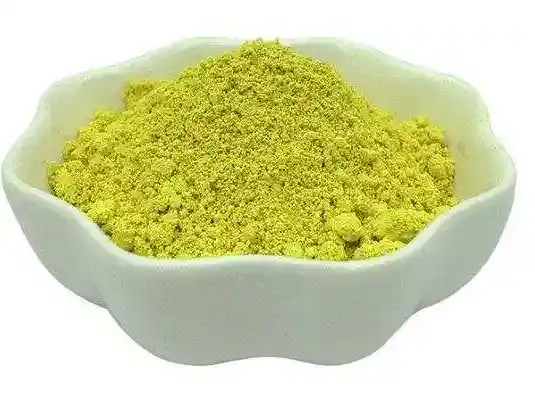
Angelbio: Leading Innovation in Natural Ingredients for Health & Wellness
Angelbio is an innovative enterprise jointly invested by Angel Holding Group and the Institute of Life and Health Research of Xi'an Jiaotong University, dedicated to the research and development, production, and sales of natural ingredients for healthy food, nutritional supplements, cosmetics, personal care products, pharmacy, as well as the flavor and fragrance industries. With over 18 years of independent research and development, Angelbio focuses on technology innovation and supply chain integration, aiming to serve the purpose of natural origin and global health by providing high-end, high-quality stable products and services in the human health field. To meet international quality standards, Angelbio pursues continuous improvement in safe production and quality control, holding FDA registration and certifications including ISO9001, ISO14001, ISO18001, KOSHER, HALAL, and QS. Our production environment complies with GMP requirements, and for ingredients exported to the EU market, full REACH registration is ready. Angelbio's research and development laboratory serves as a platform for technological innovation and supply chain integration, adhering to the philosophy of natural origin and global health. As a trusted China Quercetin Powder manufacturer, our products are highly esteemed by customers. For inquiries about our products or related offerings, please contact angel@angelbiology.com for wholehearted service.
References:
1. Zamin, L. L., et al. (2006). Quercetin protects against oxidative stress-induced neurotoxicity in rat cortical cells. Archives of Biochemistry and Biophysics, 448(1-2), 56-64.
2. Zhao, Y., et al. (2017). Quercetin improves insulin sensitivity in diet-induced obese mice by reducing inflammation in adipose tissue. Molecular Nutrition & Food Research, 61(11), 1700756.
3. Kim, J. H., et al. (2010). Quercetin enhances mitochondrial biogenesis and mitochondrial function in primary hepatocytes. Biochemical Pharmacology, 80(12), 1899-1907.
4. Li, Y., et al. (2013). Quercetin improves insulin sensitivity in streptozotocin-induced diabetic rats. Biological Research, 46(4), 339-345.
5. Ramos-Romero, S., et al. (2012). Effects of dietary flavonoids on metabolic syndrome and related health conditions. Current Pharmaceutical Design, 18(34), 5744-5755.
6. Chuang, C. C., et al. (2010). Quercetin is equally or more effective than resveratrol in improving insulin sensitivity in adipocytes. Journal of Nutrient Biochemistry, 21(6), 520-527.
7. McAnulty, L. S., et al. (2013). Influence of quercetin supplementation on disease progression in an animal model of amyotrophic lateral sclerosis. Journal of Nutritional Biochemistry, 24(9), 1610-1617.
8. Marungruang, N., et al. (2016). Effects of quercetin on gut microbiota and host metabolic health. European Journal of Nutrition, 55(8), 2507-2519.
9. Lu, J., et al. (2018). Quercetin reverses d-galactose-induced neurotoxicity and cognitive impairment in mice. Food & Function, 9(3), 1618-1627.
10. Aguirre, L., et al. (2014). Quercetin improves insulin signaling and mitochondrial function in the liver of high-fat diet-fed mice. Food & Function, 5(9), 2333-2340.



